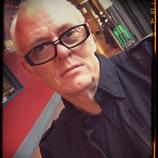This program challenges master’s degree holders to become scholars and through quantitative and qualitative research at an advanced level. Students develop and demonstrate knowledge and skills, synthesize related research findings to create new knowledge in the field, and communicate these findings to those inside and outside the field who will use and apply them.
Blurring traditional disciplinary definitions, students undertake their research in one or more areas included in environmental design. Thesis documents may incorporate detailed design interventions, policy frameworks, neighbourhood guidelines, code research or combinations of these and other results. Students will work with faculty comprised of eminent design researchers and professionals, recognized internationally for their work. Students will develop knowledge and skills as individuals and in teams, synthesize related research findings, and communicate these findings for real-world application.
Completing this program
- Core Courses: Design Research Methods, Design Research Writing, Design Innovation
- Additional Courses: One required elective; may include topics such as design thinking, urban infrastructure, urban design, urban systems, special topics and others.
- Annual Progress Reports: Student progress reports must be submitted annually by the student and the supervisor.
- Field Work and Research: Off-campus fieldwork and research may count towards the fulfillment of the full-time study and research requirement.
- Thesis Proposal: A thesis proposal approved by the supervisor.
- Candidacy: Students will complete both oral and written candidacy exams.
- Thesis: Students will be required to submit and defend an original research thesis.
Outcomes
Academia, government/civil service, municipalities, engineering, energy resources, natural resources, environmental management, planning, urban design, research institutions, private sector.
A PhD in environmental design is usually considered a terminal degree.










